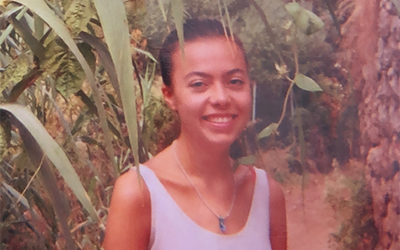Sofia Gomez - Medical Anthropology MSc
23 March 2021

I completed my MSc in Medical Anthropology from 2018 - 2020, on a part time basis as I was working throughout my masters.
When I joined, I had just completed a BSc in Human Sciences. In my final years I had taken several neuroscience modules which I really enjoyed but I felt constricted in the types of questions I could ask and the types of analysis we could include. I enjoyed learning about processes such as learning and memory at a neural or individual level but I wanted to explore these topics from wider social, historical and environmental perspectives. This is what led me to choose Medical Anthropology.
During my MSc I found I had the freedom to explore questions to do with biology and health and link them to anthropological, sociological and psychological research and theories. The seminars, discussions and assessments throughout my MSc greatly developed my analytical skills and ability to synthesise and connect various types of knowledge.
My peers were an incredibly inspiring and engaging group. They came from a wide range of backgrounds varying in personal, academic and professional trajectories. This ensured that seminars were lively and rich in perspectives. I learned a lot from our discussions and formed meaningful friendships which have grown beyond the MSc.
In my final term I took a module called Migration and Health. We explored topics to do with migration and health from anthropological, health policy and global health perspectives. Our discussions on the politics of epidemics became even more timely as the coronavirus pandemic began to spread. Although our classes got interrupted by the pandemic, the lecturers were very supportive in providing contact and feedback despite the distance.
One of the most enriching aspects of my MSc was writing a dissertation. As this also took place during the coronavirus pandemic, fieldwork was no longer possible. However, I was able to explore a topic that arose from the pandemic- the intersection between migration and care work and how this is linked to the devaluation of care work. I had an exceptional and encouraging supervisor who provided energising conversation and feedback, which was particularly crucial under the circumstances.
Since graduating I have learnt how to knit, continued to tutor and recently started working for an organisation that provides support and personalised information for cancer patients. My role involves interacting with patient groups and reading scientific research and translating it into easily understandable information without losing specificity or accuracy. I continue to bring an anthropological approach and nuance to the questions I ask. My MSc was an incredibly important period of growth for me, and I hope to do further research in medical anthropology in the future.
 Close
Close

